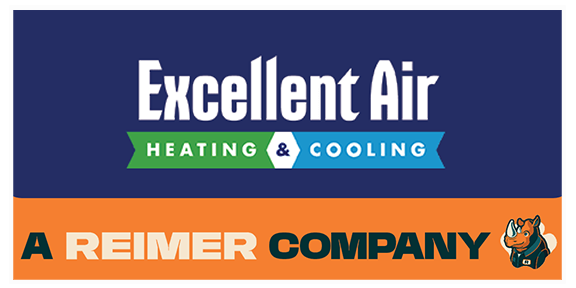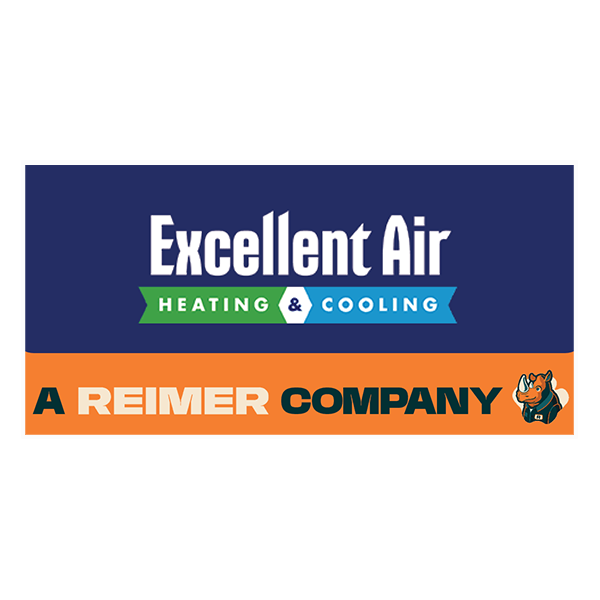When allergy season hits, many people seek refuge indoors, hoping to escape pollen, dust, and other allergens. However, indoor air quality can significantly impact allergy symptoms. Surprisingly, your air conditioner can play a crucial role in alleviating allergies by improving the air you breathe at home. This blog explores how air conditioners help with allergies, what to look for in an AC unit, and tips for maintaining your system for optimal allergy relief.
Ready to make your home a haven from allergens? Contact Excellent Air Heating & Cooling today for expert advice and services!
How Air Conditioners Help with Allergies
Air conditioners do more than just cool your home; they also contribute to a healthier indoor environment by tackling common allergens. Here’s how:
- Filtering Out Allergens: Modern air conditioners are equipped with advanced filters that capture pollen, dust, pet dander, and other airborne particles. High-efficiency particulate air (HEPA) filters are particularly effective in trapping microscopic allergens, ensuring cleaner air circulates throughout your home.
- Maintaining Optimal Humidity Levels: Allergens like dust mites and mold thrive in high humidity. Air conditioners help maintain a balanced indoor humidity level, reducing the growth of these allergens. By keeping humidity levels in check, your AC unit creates an environment less conducive to allergens.
- Circulating Clean Air: Air conditioners continuously circulate air, which helps to remove stale air and replace it with fresh, filtered air. This constant airflow reduces the concentration of allergens and improves overall indoor air quality.
For more information on our air conditioning services, check out our air conditioning services page.
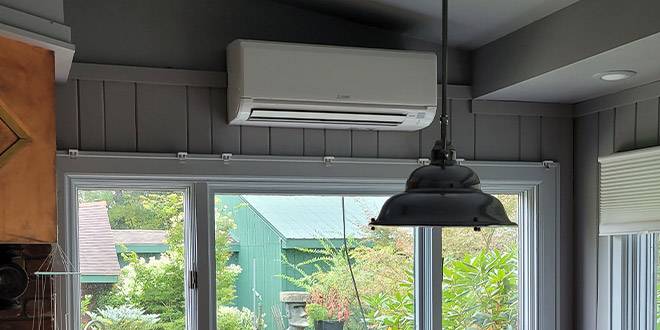
Choosing the Right Air Conditioner for Allergy Relief
Selecting the right air conditioner can make a significant difference in managing your allergy symptoms. Here are some key features to look for:
- HEPA Filters: Ensure your air conditioner has HEPA filters, which are highly effective in trapping fine particles like pollen, dust mites, and pet dander. These filters can remove up to 99.97% of airborne allergens, providing a cleaner indoor environment.
- UV Light Systems: Some air conditioners come with UV light systems that kill bacteria, mold, and other microorganisms that can worsen allergies. This feature enhances the air quality by eliminating potential allergens before they circulate through your home.
- Energy Efficiency: Look for air conditioners with high energy efficiency ratings. Efficient units not only save on energy costs but also tend to have better filtration systems and humidity control, both of which are crucial for allergy relief.
- Programmable Thermostats: A programmable thermostat allows you to maintain consistent indoor temperatures, which can help reduce humidity levels and prevent the growth of allergens like mold.
Choosing the right air conditioner can significantly improve your indoor air quality and help manage your allergies. For expert advice and a range of options, visit our AC repair page.
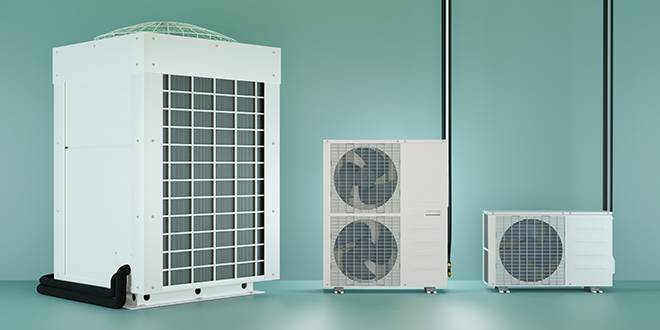
Maintenance Tips for Maximizing Allergy Relief
Proper maintenance of your air conditioner is essential for ensuring it effectively alleviates allergies. Here are some tips to keep your system in top shape:
- Regular Filter Changes: Replace or clean your air conditioner’s filters every 1-3 months, or as recommended by the manufacturer. Clean filters are crucial for trapping allergens and maintaining good air quality.
- Cleaning Air Ducts: Over time, dust, mold, and other allergens can accumulate in your air ducts. Schedule regular professional cleaning to ensure that your ducts are free from contaminants that can be circulated through your home.
- Professional Maintenance Services: Regular professional maintenance helps keep your air conditioner running efficiently and effectively. Technicians can inspect, clean, and service your unit, addressing any issues that may affect its performance and your indoor air quality.
- Checking for Mold and Mildew: Moisture can lead to the growth of mold and mildew in and around your air conditioning unit. Regularly inspect your system for signs of moisture and have any issues addressed promptly to prevent allergen buildup.
By following these maintenance tips, you can ensure your air conditioner works optimally to reduce allergens and improve your indoor air quality. For comprehensive maintenance services, visit our AC maintenance page.
Additional Tips for Allergy-Proofing Your Home
In addition to maintaining your air conditioner, there are several other steps you can take to minimize allergens in your home:
- Using Air Purifiers: Place air purifiers with HEPA filters in key areas of your home, such as bedrooms and living spaces. These devices can help remove airborne particles that your air conditioner might miss, providing an extra layer of protection against allergens.
- Regular Cleaning and Dusting: Dust and vacuum your home regularly using a vacuum with a HEPA filter. Wash bedding, curtains, and other fabrics frequently to reduce dust mites and other allergens.
- Managing Humidity Levels: Use a dehumidifier in areas prone to moisture, like basements and bathrooms, to keep humidity levels below 50%. This helps prevent mold growth and dust mite proliferation.
- Keeping Windows and Doors Closed: During high pollen seasons, keep windows and doors closed to prevent outdoor allergens from entering your home. Use air conditioning to stay cool instead of relying on open windows.
- Bathing Pets Regularly: If you have pets, bathe them regularly to reduce the amount of pet dander in your home. Keep pets out of bedrooms and off upholstered furniture to minimize exposure to allergens.
Implementing these additional measures can significantly enhance your home’s air quality, making it a more comfortable environment for allergy sufferers. For personalized advice and solutions, feel free to contact us.
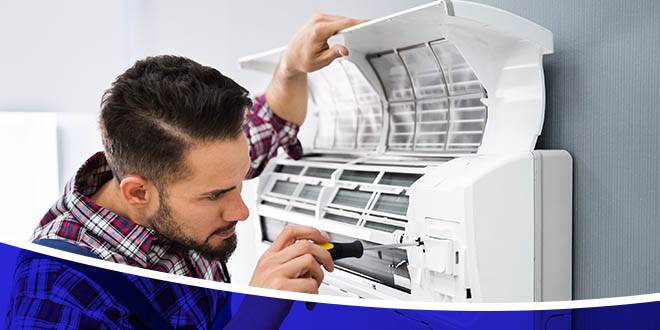
Invest in Quality AC and Maintenance for Maximum Allergy ReliefConclusion
Investing in a quality air conditioning system and maintaining it properly can make a significant difference in managing your allergy symptoms. By filtering out allergens, maintaining optimal humidity levels, and circulating clean air, your air conditioner plays a vital role in improving indoor air quality. Additionally, choosing the right features and following essential maintenance tips can maximize the allergy-relief benefits of your AC unit.
Remember, maintaining a clean and allergen-free home environment involves more than just using an air conditioner. Incorporate additional steps like regular cleaning, using air purifiers, and managing humidity levels to ensure your home is a haven from allergies.
At Excellent Air Heating & Cooling, we are dedicated to helping you achieve the best indoor air quality possible. Whether you need a new air conditioner, maintenance services, or personalized advice, our team is here to help. Visit our air conditioning services page or contact us to learn more.


